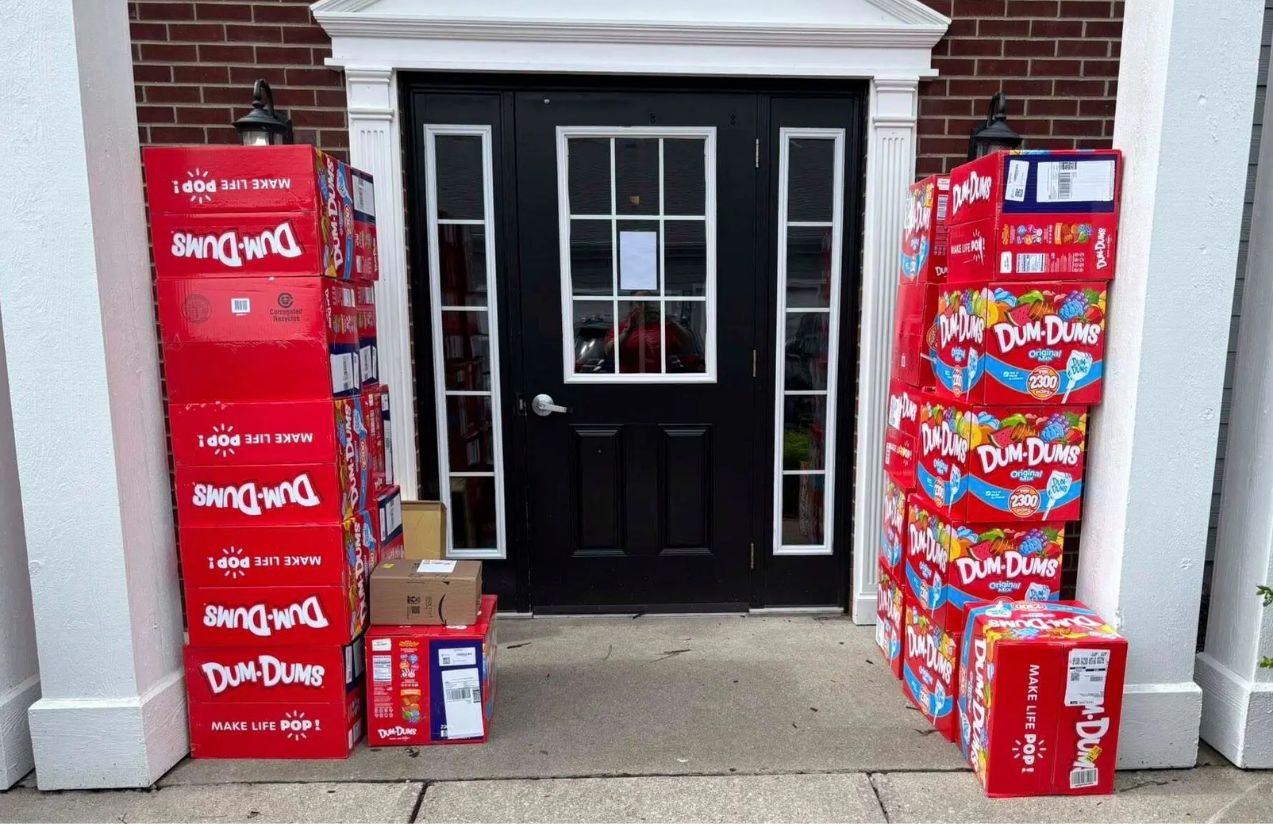What began as an ordinary Sunday in Lexington, Kentucky, turned into a surreal scene for Holly LaFavers. Upon opening her apartment door, she found 22 large boxes stacked outside. Inside were more than 70,000 Dum-Dums lollipops—accidentally ordered on Amazon by her eight-year-old son, Liam, who thought he was simply planning a carnival for his friends.
The order, totaling $4,200, drained LaFavers’ bank account and triggered a wave of panic. Although she tried to cancel the purchase, Amazon only allowed a partial return. The rest—classified as “food”—was nonrefundable. In desperation, she turned to social media to try and resell the boxes and recover some of the money. But the story quickly went viral.
The incident struck a nerve nationwide. Parents across the U.S. shared similar tales: accidental purchases of virtual game currencies, unexpected subscriptions, and bizarre orders placed by unsupervised children. Liam’s story became a vivid example of the risks tied to unrestricted access to online shopping platforms.
The media attention grew, and eventually, Amazon relented—refunding the full amount as a goodwill gesture. The company took the opportunity to turn a PR fiasco into a charm offensive, saying it aimed to make “a sticky situation even sweeter.”
With the money back in hand, LaFavers chose not to sell the lollipops but to give them away to those who had offered to buy a box to help. Offices, schools, churches, and neighbors all received part of the sugary bounty. Even Spangler Candy Co., the maker of Dum-Dums since 1924, joined in by inviting the family to visit its factory in Ohio.
Liam, for his part, offered to sell his Pokémon card collection to help make things right. His thoughtful gesture touched many—though his Amazon browsing privileges were revoked indefinitely.
Beyond its sweet ending, the story sends a clear message: in the age of e-commerce, the line between play and real transactions is dangerously thin when left in young hands. Unrestricted access to digital platforms calls for parental controls, disconnected payment methods, and, most importantly, early education in responsible consumption. Because kids today aren’t just pretending to shop—sometimes, they really do.



















